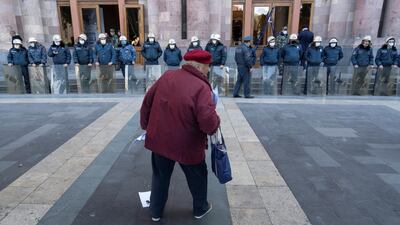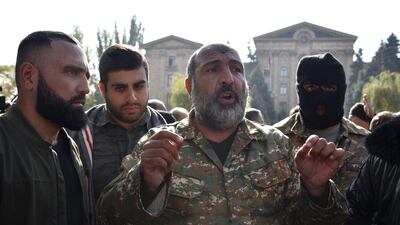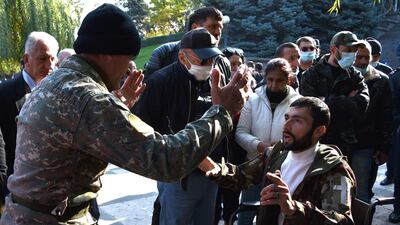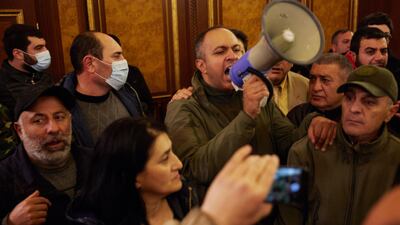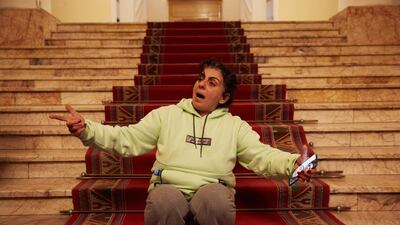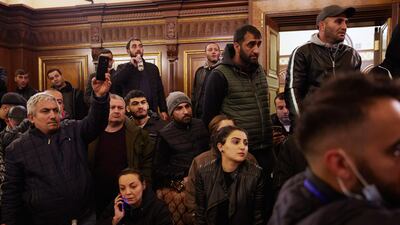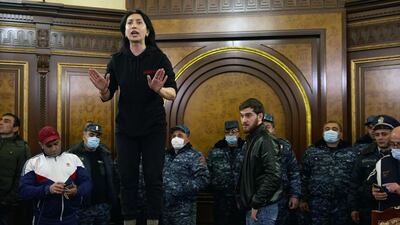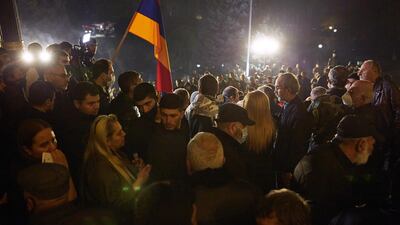Angry protests broke out in Armenia's capital Yerevan in the early hours of Tuesday, with calls for the resignation of Armenian Prime Minister Nikol Pashinyan after he agreed a deal to end the conflict with Azerbaijan over breakaway enclave Nagorno-Karabakh.
Protesters stormed the prime minister's official residence, as well as the parliament, with emotions running high after six weeks of conflict that killed at least 1,300 Armenians in a country with a population of just three million.
Some called for revolution, while others chanted "Artsakh is not for sale", using the Armenian name for Nagorno-Karabakh.
Offices were trashed, with cigarette butts and empty bottles left behind. Mr Pashinyan said on social media that a computer, watch, some perfume and a driver's licence had gone missing from his residence in the capital's central Republic Square.
As the number of protesters in parliament began to wane, opposition MPs gathered in the main chamber, waiting for members of the ruling party to arrive to debate a deal they said was "without consensus".
After a long night, Naira Zohrabyan, an MP from the opposition Prosperous Armenia party, said at 7am that the details of the agreement had not been shared or debated.
"What kind of document is it? Is it a surrender, a ceasefire? All we know is that every decision should be democratically agreed in parliament," she said.
By lunchtime, police said they had regained control of parliament.
Confidence in Mr Pashinyan was already low, with a number of opposition parties on Monday calling for him to step down.
Mr Pashinyan, whose whereabouts are unknown, announced the deal modestly through a 2am Facebook post, later saying he had been forced to agree to it by the military.
The post said it had been a "very hard" decision and "unbelievably painful for me and our people".
"I made the decision as a result of a deep analysis of the military situation and ... based on the belief that this is the best solution in the situation," he said.
Celebrations broke out in the Azerbaijani capital Baku after the announcement. The country's president, Ilham Aliyev, said that he had agreed to a timetable to withdraw its forces from large parts of Nagorno-Karabakh and that the deal would "return our territories without any further bloodshed".
The deal states that Armenian forces will withdraw from the enclave, and two other areas, Aghdam and Kalbajar, will be retuned to Azerbaijan over the next few weeks so that refugees who fled war in the 1990s could return. The deal is being seen as more favourable to Azerbaijan, and perceived as a national disaster in Armenia.
Russian peacekeepers will be deployed along the line of contact for at least five years.
Azerbaijan's forces have made steady gains and on Sunday Mr Aliyev claimed they had taken the strategic and culturally significant city of Shusha, also known as Shushi, which Armenia denied.
The leader of the Nagorno-Karabakh region, Arayik Harutyunyan said that ethnic Armenian forces had lost some regions in the fighting and that the deal had been unavoidable because Azerbaijani forces were drawing close to the capital Stepanakert.
After a ceasefire took effect early on Tuesday morning, hundreds of Russian troops were quickly en route to Nagorno-Karabakh and Mr Aliyev said Turkey – a key ally of Azerbaijan – will also pay a role.
Conflict over the territory has simmered for decades, but escalated into open warfare at the end of September with both sides accused of targeting civilians as well as possible war crimes.
